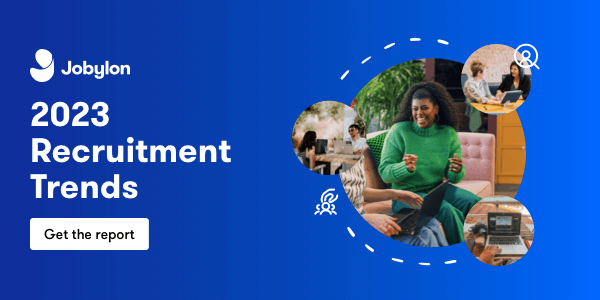The concept of the metaverse was first introduced by Neal Stephenson in his science-fiction novel Snow Crash, published in 1992. In simple terms, it is a virtual environment where people can interact, work, and play together using avatars. Today, the metaverse is no longer a science-fiction concept. Technologies like virtual reality, augmented reality, and artificial intelligence have turned the concept of this digital world into a reality. As a result, the metaverse has entered our lives.
 In turn, the metaverse has already sparked a growing interest in the area of recruitment. In the new normal, hiring has been largely virtualized, and companies are continuously seeking new-age technology in this direction. In fact, certain companies, such as Hays, Hyundai, and Samsung, have already invested in the metaverse to hold virtual career fairs, recruit highly qualified talent, and train people. While it’s still in its infancy, the potential that the metaverse technology offers is almost limitless. In this article, we will give you a glimpse of what changes the metaverse will bring to the recruitment industry.
In turn, the metaverse has already sparked a growing interest in the area of recruitment. In the new normal, hiring has been largely virtualized, and companies are continuously seeking new-age technology in this direction. In fact, certain companies, such as Hays, Hyundai, and Samsung, have already invested in the metaverse to hold virtual career fairs, recruit highly qualified talent, and train people. While it’s still in its infancy, the potential that the metaverse technology offers is almost limitless. In this article, we will give you a glimpse of what changes the metaverse will bring to the recruitment industry.
1. Attracting More and Better Talent
Talent is the most vital asset of every company. However, attracting the top candidates is no easy feat. The unexpected changes the global pandemic brought to the labor market have made it more difficult. Job seekers have become more selective, and their expectations from potential employers have changed.
As a result, companies are continuously experimenting with novel ideas to adjust to these new expectations, offer an extraordinary candidate experience, and stay competitive in the employment market. On this note, it is no secret that having a strong and unique employer brand is key to attracting high-quality talents. While technology has already helped many businesses in terms of branding and candidate experience, it still falls short.
However, the metaverse can bridge these gaps. Given the wide array of opportunities this technology offers, companies can create a more personalized employer branding experience and provide access to richer sources of information. Virtual recruitment fairs and other events where candidates can learn more about employers will be commonplace. This will make the process more interactive, human, informative, and fun, allowing companies to lift candidate experiences beyond the ordinary.
Using the metaverse, companies can create a fully immersive candidate journey in a virtual environment where their people, values, culture, mission, and products really come to life. Through this, they will be able to offer an authentic behind-the-scenes tour of their workplace, show them the projects they’re currently working on, and enable candidates to get a feel of what it’s like to work with them.
In turn, using the wealth of information they can get through this realistic experience, potential candidates will be able to better assess whether they are a good team and cultural fit for the company. Therefore, we believe employers will be more likely to attract talents who are not only skilled but also a better fit for their culture.
2. Improving the Job Application Process
The job application process has been digitized. However, it is still flawed, affecting the candidate experience. Applying for a job can be lengthy, cumbersome, and restrictive, with screen after screen of specific questions. The online process can also be less personal compared to face-to-face, video, or audio communication, preventing candidates from conveying how they can be a good fit for the company’s culture. While this can bring significant cost and time savings to employers and recruiters, they could end up missing out on great candidates.
With the adoption of different software and platforms, almost everything is done online, and the metaverse could make the job application process a more immersive, convenient, and rich experience for applicants. Companies could be able to create an application process personalized for each candidate, giving them the freedom to share information and express ideas with less restrictions and more fun. Emails and forms may no longer be required because candidates could be able to declare their interest in the job in a more personal approach.
In a nutshell, we believe that the metaverse can make the overall job application process faster and easier for both employers and candidates. There is potential for employers to collect applicant information in a way that boosts the candidate experience. In addition, this information could be more reliable and accurate, allowing for better assessments.
 3. Enabling Fair and Efficient Assessments
3. Enabling Fair and Efficient Assessments
While assessments are a critical part of the recruitment process, all existing solutions come with a few disadvantages. Typically, traditional assessments like in-person interviews are popular, as they give room for human interaction, but they can be costly and difficult to plan. Virtual assessments can be more flexible and cost efficient, however, they may come with technical issues and limited tool functionalities. This can produce questionable or inaccurate results, leading to poor-quality hires.
The metaverse can offer a solution that will bring the best of both real and virtual worlds. It will not only maintain assessments online, but it can make them more effective and fun through immersion and gamification. Within 2022, a new application in the Metaverse will be launched to improve conventional 2D videos with 3D virtual rooms.
Such tools will enable candidates to immerse themselves in a metaverse of branded virtual conference rooms and office buildings during assessments activities. This way, both candidates and employers can enter a digital world with real-time interaction, even when it comes to activities requiring multiple parties, such as panel interviews or assessment centers. As a result, employers will be able to evaluate a candidate’s core skills and behavior with accuracy, fairness, and timeliness.
In addition, we believe that the metaverse can be a great solution to boost diversity and inclusion. With the use of avatars to interact with employers, recruiters, and other people in this virtual environment, there’s a potential for unconscious biases and discrimination issues to be reduced. These assessments could mitigate the risk of hiring decisions being based on variables irrelevant to the particular job. In short, employers will be able to focus only on a candidate’s skill sets and professional credentials instead of risking making decisions based on their gender, race, religion, status, or background.
4. Driving a Comprehensive Onboarding
Onboarding is both important and challenging. When done well, it builds a foundation for long-term success for both the company and employees. However, the traditional onboarding process can be very costly and time-consuming, which may not be practical, especially for big corporations with thousands of new employees to onboard.
In fact, onboarding can cost up to $4,100 per new hire. While existing technology helps, it is still limited in terms of pre-start date onboarding options. This is because new hires aren’t in the office yet, and, in most cases, virtual options don't actually allow for a holistic and immersive experience.
The metaverse can transform the onboarding process, allowing for interactive experiences that can deliver a more productive learning environment for each newly hired employee. Through this, companies can provide a realistic experience for new hires through a digital world where they can visualize their organizational structure, have a feel of their culture, walk around the workplace, participate in training, and meet their new co-workers no matter where they are in the world. This way, new hires could get a better understanding of their role and the business, getting ready to hit the ground running.
In addition, the immersive onboarding experience the metaverse offers could help build higher engagement and loyalty, which are key to talent retention. In fact, a study found that a group of employees trained through virtual reality are more engaged and have better retention levels than those trained through a traditional approach. In short, we believe that the metaverse can be the solution to common long-standing onboarding challenges.
Conclusion
The metaverse presents the recruitment industry with virtually endless opportunities. These involve building a digital ecosystem that will bring employers and candidates together to engage. From holding virtual career fairs and using picture-based documents for job ads to conducting virtual interviews and assessments to onboarding, the metaverse will definitely transform the way companies recruit to attract the best talents from different parts of the world. While a few companies have already invested in this technology, the reality is that it is still a work in progress. But one thing’s for sure, the metaverse is here to stay and will undoubtedly change how we live, work, and recruit.
Related content you also might like:





